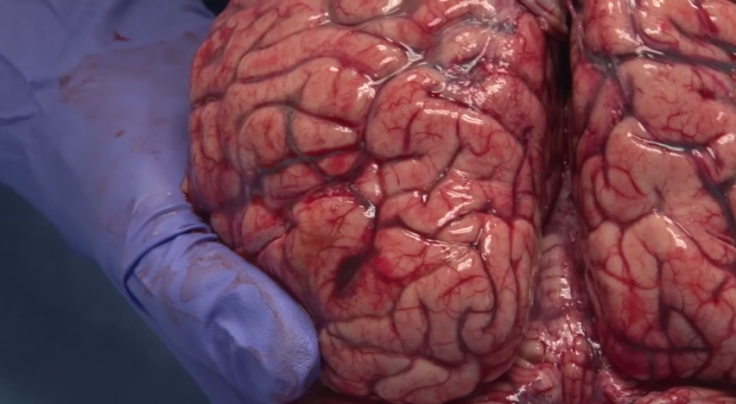Handle With Care: The Human Brain Is Delicate And You Should Take Care Of It

It’s easy to see a 3-year-old run himself into his bedroom wall, shake it off, and go play in another room, and think the brain is indestructible. Or maybe you see hulking grown men hurling themselves at one another on the football field and chalk up their lasting health to their athleticism. But one neurobiology professor would like to disagree.
Dr. Suzanne Stensaas, of the University of Utah School of Medicine, has a freshly autopsied brain that she’d like you to take a look at. Stensaas also teaches anatomy, which means she can name just about every nook and cranny of the brain’s myriad folds and pathways. As she turns over the three-pound mass in her hands, she reflects on how soft it really is. Not even a minute of it resting in her hands and one finger already leaves a dent in the tissue.
"Think how vulnerable the brain is, and then think how narrow and small the spinal cord is and how devastating a quick subluxation of the vertebra, or a herniation of a disk," would be to the delicate spinal cord, Stensass explains. "It’s much softer than most of the meat you would see in a market."
Should it be any wonder that concussions and other traumatic brain injuries are so common in high-impact sports? Cerebrospinal fluid acts as a protective cushion around the brain, but nothing can stop the organ from bashing into the inner walls of the skull after quickly stopping at a high velocity — no matter how advanced a helmet (or 3-year-old sense of limitlessness) may be.



























